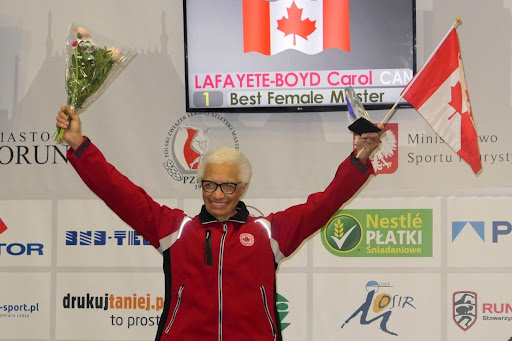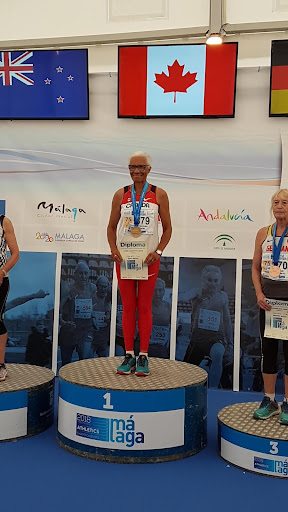Editor's Note: This blogpost is cross posted from the Lion Publisher's website.
These aspiring journalism publishers will serve communities from Nova Scotia to Vancouver
From upper left: Shauna Rae, Jordan Maxwell, Ashleigh-Rae Thomas, Flavian DeLima, Yona Harvey, Camila Castaneda, Charles Mandel, Ayesha Ghaffar, Seyedmostafa Raziei, Sandra Hannebohm, Cara Fox and Kelly-Anne Riess
For the past two years, our GNI Startups Boot Camp has helped nearly 50 founders
launch independent new businesses across the U.S. and Canada. But as we supported those aspiring entrepreneurs to validate and execute their ideas, we kept coming back to one question: the Canadian news landscape has some of its own unique challenges and opportunities. Why not create a program specifically to serve this burgeoning ecosystem?
That’s why we’re thrilled to announce, in partnership with the Google News Initiative, the inaugural cohort for our GNI Startups Boot Camp Canada.
These 16 startups will embark on an intensive eight-week program that includes the training and coaching that will help them launch sustainably and meet their communities’ information needs.
“We’re looking forward to working with this passionate, diverse and all-Canadian cohort of emerging news entrepreneurs, and supporting them on their path to launching an independent news business,” said Andrew Wicken, Head of News Partnerships at Google Canada. “The curriculum has been adapted specifically to address the realities of operating in Canada and supports our mission of helping to build a thriving, diverse and innovative Canadian news ecosystem. We’ve seen how this program can accelerate their progress, build connections and community, and set them on a path to sustainability.”
The cohort members were selected by an independent panel of judges based on their compelling ideas, potential to make a strong impact and commitment to making their publications financially sustainable. They’ll be guided by the following team of exceptional industry experts:

- Boot Camp Co-Producer (and 2020 Boot Camp graduate!) Eva Voinigescu is a freelance journalist and audio producer based in Toronto. She currently produces the Energy vs Climate podcast.
- Boot Camp Coach Natasha Grzincic (Gur-zin-sitch) is the deputy editor at VICE Canada and the force behind Tipping Point, VICE’s series on environmental justice. She’s also a co-founder of Canadian Journalists of Colour, “a networking and resource-sharing group for racialized journalists that’s now over 1,300 strong.”
- Boot Camp Coach Hannah Sung is a journalist and co-founder of Media Girlfriends, a podcast production company focused on inclusivity in media. She also writes the newsletter At The End Of the Day.
- Boot Camp Director Phillip Smith is a veteran consultant and coach. His passion is helping newsrooms to make more money, helping news startups grow their audience, and helping journalists succeed as entrepreneurs. The boot camp curriculum was developed during his time as a John S. Knight fellow at Stanford University.
“As someone born in Toronto General Hospital, who spent childhood summers with family in Quebec and Nova Scotia, as well as having spent a decade working in a startup newsroom in Vancouver, the opportunity to make the Boot Camp available to fellow Canadians is a real honour,” Smith said. “The individuals in this cohort are determined and their initiatives are very exciting — I can’t wait to get started.”
About the 2021 cohort:
- 10 publications will focus on a local or regional audience; 6 will focus on a demographic or identity-based audience
- 14 publications will explicitly serve an underrepresented or marginalized audience that doesn’t often see itself reflected in the media
- 56% of participants identify as a person of colour or as coming from an underrepresented or marginalized background
- The publications will serve audiences in 7 Canadian provinces/territories
- 14 publications will be run by solopreneurs; 2 will operate as teams of two
- 10 publications haven’t launched yet; 6 are in the process of testing their idea or have very recently launched
Meet the 16 teams in the cohort:
*There are three additional startups not listed below that are remaining in stealth mode for now.
Clearing a New Path
Serving: Dorchester, Ontario
Description: Amplifying the underrepresented voices of women entrepreneurs in rural Canada
Founder: Shauna Rae
From a Coloured Lens
Serving: Vancouver, British Columbia
Description: A podcast designed by and for BIPOC people, allowing them to share how mainstream issues impact their communities
Founder: Ayesha Ghaffar
Latitodo
Serving: Vancouver, British Columbia
Description: A publication focused on the Latinx diaspora, specifically young adults who are interested in connecting with their heritage whilst adapting to life in Canada.
Founder: Camila Castaneda
Island Edition
Serving: Prince Edward Island
Description: An independent journalism platform to report in-depth on the issues affecting Prince Edward Island, and to share the stories and experiences of the people living in Canada’s smallest province.
Mabuhay Canada
Serving: Belleville, Ontario
Description: Mabuhay Canada is a one-stop website featuring news, local and international Filipino newsmakers, services, shopping, travel and immigration needs for Filipinos living in Canada
Founder: Yona Harvey
Mostafa
Serving: Vancouver, British Columbia
Description: Online new media focused on bringing newcomer and immigrant points of view to a greater audience
Founder: Seyedmostafa Raziei
North Star Press
Serving: Toronto, Ontario
Description: A magazine/online paper for Black leftists, named North Star Press after Frederick Douglass’ anti slavery newspaper
Founder: Ashleigh-Rae Thomas
Parles-on
Serving: Montreal, Quebec Description: A bilingual podcast about current events in Canada and beyond
Founder: Cara Fox
South Shore Lines
Serving: Nova Scotia’s South Shore
Description: A rural, alternative digital magazine focused on news, arts, culture, and more for Nova Scotia’s South Shore
Founder: Charles Mandel
Spinning Forward
Serving: Toronto, Ontario
Description: Collectively and collaboratively, we want to build and grow a more inclusive and strong online BIPOC creator community in Toronto on their own terms
Founder: Flavian DeLima
The Flatlander
Serving: Regina, Saskatchewan and Winnipeg, Manitoba
Description: An email newsletter about important issues that impact Manitoba and Saskatchewan
Founder: Kelly-Anne Riess
To Be Announced
Serving: Toronto, Ontario
Description: To be announced
Founder: Jordan Maxwell
Twice as Good Media (2G)
Serving: Halifax, Nova Scotia
Description: A hub for compelling narratives and black talent in media
Founder: Sandra Hannebohm
The GNI and LION would like to thank our panel of judges who were instrumental in selecting the cohort. They are: Gina Uppal from the On Canada Project, Colleen Kimmett from the Google News Initiative, Adam Chen from Talk Media, Jordan MacInnis from Journalists for Human Rights, Nkem Kalu from The Northpine Foundation, Julie Sobowale from the Canadian Association of Black Journalists, Sadiya Ansari from Canadian Journalists of Colour and Samanta Krishnapillai from the On Canada Project.












